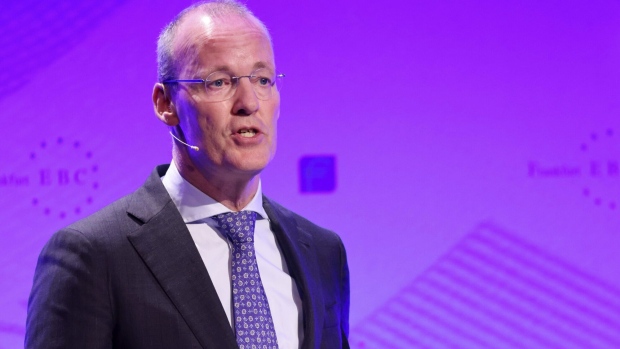Jun 6, 2023
ECB’s Knot Says Second-Round Effects Are Keeping Inflation High
, Bloomberg News

(Bloomberg) -- The euro area is now observing second-round effects from higher energy costs, meaning that it will be harder to bring down consumer prices, according to European Central Bank Governing Council member Klaas Knot.
“Energy prices have found their way into other items in the consumer basket, and wages and services in particular have taken over the inflation torch,” Knot said Tuesday in a speech in Luxembourg. “It is likely that price pressures in these areas will prove more difficult to bring down.”
The Dutch central bank governor spoke in the week before the ECB is widely anticipated to raise interest rates further before another projected increase in July. One of its more hawkish policymakers, Knot has previously said that he’s “open minded” on the possible need to keep hiking in September too.
Officials have raised borrowing costs at the fastest pace in ECB history to counter runaway inflation in the wake of Russia’s war in Ukraine. While price gains are well down from their record, underlying pressures that exclude food and energy costs remain elevated and have become the key focus for policymakers in Frankfurt.
“Because inflation was high for a long period, underlying inflationary pressures have built up,” Knot said. “As a consequence, we now observe second-round effects.”
The Dutchman did acknowledge that there still are dangers lurking in the banking system. A string of US failures and the forced takeover of Credit Suisse Group AG have all transpired this year amid rising borrowing costs.
“While medium-term inflation and longer-term financial stability policies are now more aligned, a short-term financial stability risk looms around the corner” amid tighter monetary policy, Knot said. “Higher interest expenditures might eventually also trigger some corporate liquidity issues.”
©2023 Bloomberg L.P.






